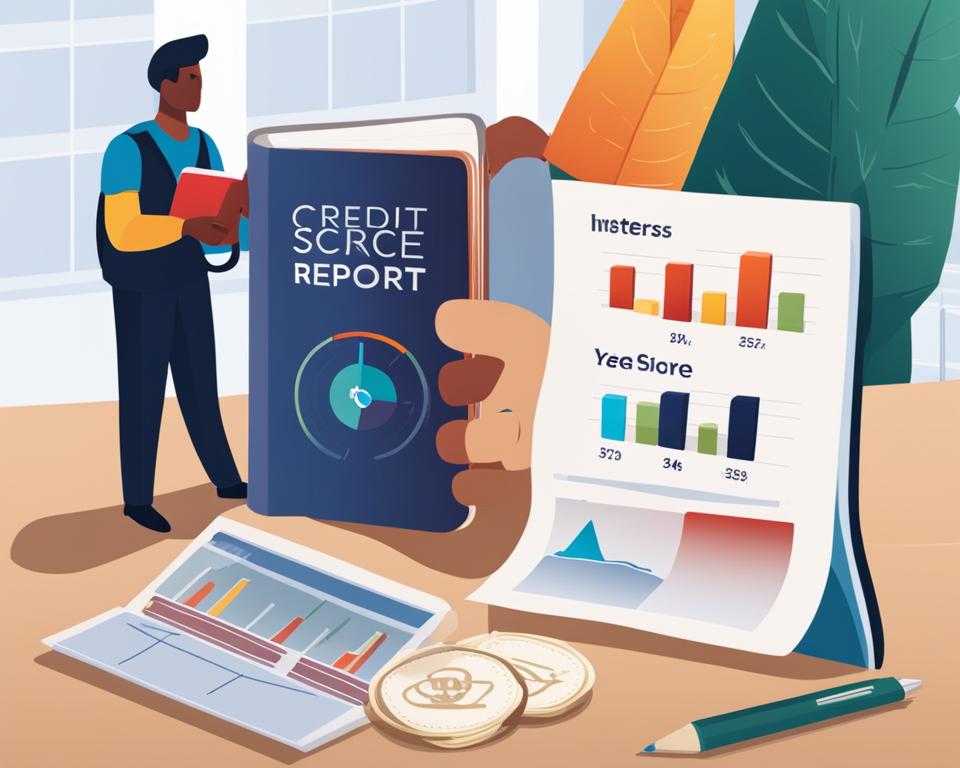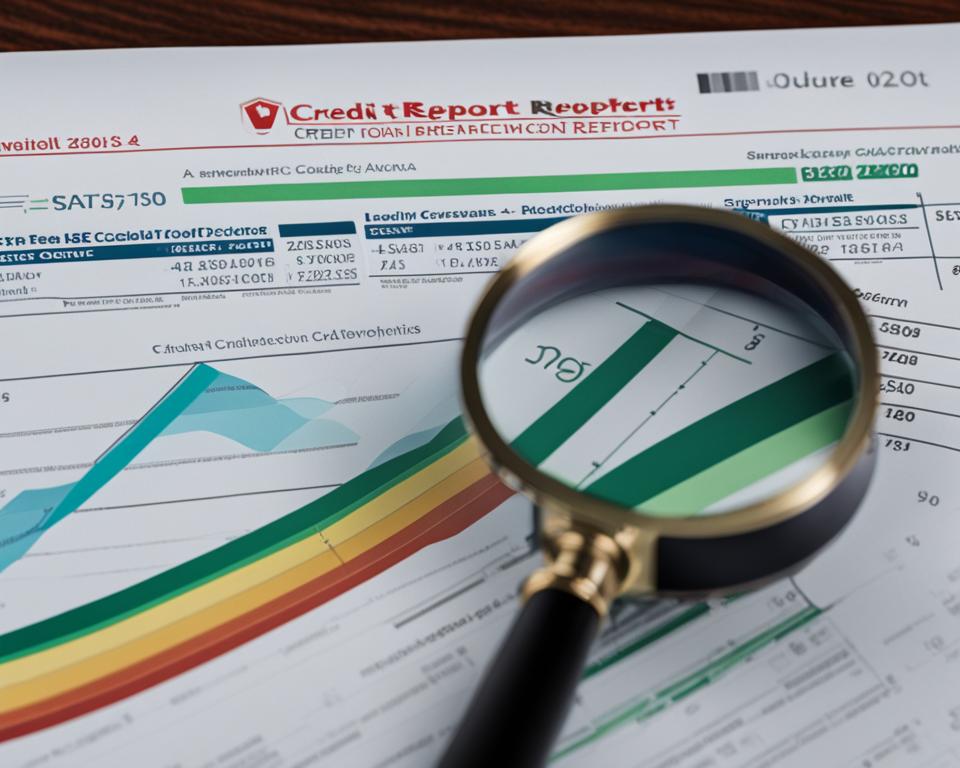Having a good understanding of how credit scores work is crucial for managing your personal finances and making informed financial decisions. Whether you’re applying for a credit card, a mortgage, or any other type of loan, your credit score plays a significant role in determining your creditworthiness.
A credit score is a three-digit number that provides a snapshot of your creditworthiness. It is calculated using information from your credit reports, which include details about your credit accounts, payment history, account balances, and more. Lenders use credit scores to assess your creditworthiness and make decisions about loan approvals and terms.
Understanding the credit scoring system and the factors that contribute to your credit rating can help you take steps to improve your creditworthiness and maintain a healthy credit profile. In this quick guide, we’ll explore how credit scores work, the different credit scoring models, factors that affect your credit score, and tips for improving it.
Key Takeaways:
- A credit score is a three-digit number that reflects your creditworthiness.
- Credit scores are calculated using information from your credit reports.
- Lenders use credit scores to make decisions about loan approvals and terms.
- Factors such as payment history, credit utilization, and length of credit history influence your credit score.
- Monitoring your credit score and practicing healthy credit habits can help you improve and maintain a good credit score.
What Is a Credit Score?
A credit score is a three-digit number that indicates your creditworthiness. It serves as a measure of how likely you are to repay your debts on time. Lenders, such as banks and credit card companies, use your credit score to assess the risk of extending credit to you.
Your credit score is derived from information in your credit reports, which are maintained by credit bureaus. These reports contain details about your credit history, including your payment history, outstanding debt, length of credit history, and new credit applications.
By analyzing this information, credit scoring models calculate your credit score, which falls within a range of 300 to 850. The higher your score, the more creditworthy you are considered to be.
| Credit Score Range | Creditworthiness |
|---|---|
| 300-579 | Poor |
| 580-669 | Fair |
| 670-739 | Good |
| 740-799 | Very Good |
| 800-850 | Excellent |
Having a good credit score is vital as it demonstrates your creditworthiness to potential lenders. A higher credit score can lead to more favorable loan terms, such as lower interest rates and higher borrowing limits. It can also increase your chances of being approved for credit cards, mortgages, and other types of financing.
To maintain a good credit score, it is important to monitor your credit reports regularly for accuracy and take steps to improve your creditworthiness. This includes paying bills on time, keeping credit card balances low, and avoiding excessive credit applications.
FICO Score vs. VantageScore
When it comes to credit scores, the two most widely used models are the FICO Score and the VantageScore. These credit scoring models play a crucial role in evaluating an individual’s creditworthiness and determining their ability to access loans and credit products.
The FICO Score, developed by the Fair Isaac Corporation, is the industry standard used by 90% of top lenders. It has been in existence since the 1950s and is trusted for its accuracy and reliability. FICO Scores range from 300 to 850, with higher scores indicating better creditworthiness. Lenders use FICO Scores to assess the risk of lending money to borrowers and make decisions regarding loan approvals, interest rates, and credit limits.
VantageScore, on the other hand, is a newer credit scoring model introduced in 2006 by the three major credit bureaus, Experian, Equifax, and TransUnion. Although it is less commonly used by lenders, VantageScore is widely employed by credit monitoring services to provide consumers with an overview of their credit health. Like FICO Scores, VantageScores also range from 300 to 850.
How do FICO Score and VantageScore differ?
While the FICO Score and VantageScore use similar scoring models, they may weigh certain factors differently. The FICO Score places a significant emphasis on payment history, debt levels, and credit utilization, with payment history contributing the most weight. On the other hand, VantageScore considers factors such as payment history, credit mix, and credit age, but places less emphasis on the impact of a single missed payment.
“The FICO Score and VantageScore may weigh certain credit factors differently, but both can provide valuable insights into an individual’s creditworthiness.”
It’s important to note that FICO Scores are designed to be more consistent across different lenders and credit bureaus, while the VantageScore allows for more flexibility in customizing credit scoring models based on specific industry needs.
Ultimately, the goal of both the FICO Score and VantageScore is to provide an accurate reflection of an individual’s creditworthiness, allowing lenders and financial institutions to make informed decisions about extending credit.
FICO Score vs. VantageScore – A Comparison
| FICO Score | VantageScore |
|---|---|
| Used by 90% of top lenders | Commonly used by credit monitoring services |
| Range: 300-850 | Range: 300-850 |
| Emphasizes payment history and debt levels | Considers payment history, credit mix, and credit age |
| Designed for consistency across lenders | Allows for customization based on industry needs |
Why Are There So Many Different Credit Scores?
When it comes to credit scores, you may wonder why there are so many variations. The answer lies in the complex landscape of the credit scoring industry. Credit scoring companies continuously update their models to account for changes in consumer behavior, industry practices, and evolving creditworthiness factors. Additionally, different credit bureaus may have slightly different information in your credit reports, leading to variations in scores. Let’s explore why there are so many different credit scores and how they can impact your financial journey.
One of the reasons for the multitude of credit scores is the presence of multiple credit scoring companies. These companies, such as FICO and VantageScore, develop their own proprietary algorithms to analyze credit data and calculate scores. The scoring models used by these companies may differ in how they weigh various credit factors, resulting in variations in the final credit scores.
Furthermore, credit bureaus play a significant role in the credit scoring process. The three major credit bureaus – Equifax, Experian, and TransUnion – collect and maintain credit information on individuals. Each bureau may receive different information from lenders, leading to variations in the credit data used to calculate scores. As a result, your credit scores may differ slightly among these bureaus.
It’s important to note that credit scoring models are not limited to generic scores. There are also industry-specific scoring models that cater to specific types of loans or financial products. For example, there may be different scoring models for mortgages, auto loans, or credit cards. These models may place a higher emphasis on factors relevant to the specific industry or product type, resulting in different scores.
What Factors Affect Your Credit Score?
Several factors play a role in determining your credit score. Understanding these factors can help you make informed financial decisions and proactively manage your credit. The following elements are taken into consideration when calculating your credit score:
1. Payment History
Your payment history is one of the most crucial factors affecting your credit score. It reflects whether you have consistently made timely payments on your credit accounts, including loans and credit cards. A strong payment history demonstrates responsible financial behavior and can have a positive impact on your credit score.
2. Amounts Owed
The amounts you owe on your credit accounts also influence your credit score. This factor looks at your overall debt load and how much of your available credit you are utilizing. Maintaining a low credit utilization ratio is generally favorable for your credit score.
3. Length of Credit History
The length of your credit history is another factor that affects your credit score. A longer credit history provides more data for credit scoring models to assess your creditworthiness. It allows lenders to see your past performance in managing credit, leading to a more accurate evaluation of your risk as a borrower.
4. New Credit
Opening new credit accounts can impact your credit score. Applying for multiple credit accounts in a short period may indicate financial stress or increased risk. Credit inquiries from lenders during this time can temporarily lower your credit score. However, responsible management of new credit accounts can help improve your credit score over time.
5. Credit Mix
Having a mix of different types of credit accounts, such as credit cards, loans, and mortgages, can contribute positively to your credit score. Demonstrating your ability to handle various types of credit responsibly shows lenders that you can manage different financial obligations.
Understanding these factors and how they impact your credit score can empower you to make informed financial decisions. By maintaining a positive payment history, keeping your debt levels manageable, and responsibly utilizing credit, you can improve your credit score and enhance your overall financial well-being.
| Factors | Impact on Credit Score |
|---|---|
| Payment History | Significant |
| Amounts Owed | Significant |
| Length of Credit History | Moderate |
| New Credit | Moderate |
| Credit Mix | Moderate |
It’s important to note that these factors may carry different weightings depending on the credit scoring model used. Additionally, each individual’s credit profile is unique, so the specific impact on credit scores may vary. Regularly monitoring your credit and maintaining healthy credit habits can help ensure a strong credit score.
What Is a Good Credit Score?
A good credit score is often seen as a key indicator of financial health. It shows potential lenders that you are a responsible borrower and can be trusted to repay your debts. But what exactly constitutes a good credit score?
According to FICO, one of the widely used credit scoring models, a good credit score typically falls within the range of 670 to 739. However, it’s important to note that different lenders may have their own standards when evaluating creditworthiness. Some lenders may consider a higher score, while others may have slightly lower thresholds.
A good credit score opens up a world of financial opportunities. It can make it easier for you to secure loans, obtain favorable interest rates, and access a wider range of credit products. Lenders view individuals with good credit scores as less risky borrowers, which means they may offer more competitive loan terms.
“A good credit score is like a golden ticket to favorable loan terms and better financial opportunities.”
In addition to better loan terms, a good credit score can also lead to lower insurance premiums and increased chances of approval for rental applications. It may even impact job prospects, as some employers consider credit histories during the hiring process.
To illustrate what a good credit score can mean in practice, consider the following comparison table:
| Lender | Loan Type | Interest Rate | Loan Amount |
|---|---|---|---|
| Bank A | Mortgage | 3.5% | $300,000 |
| Bank B | Auto Loan | 4.5% | $25,000 |
| Bank C | Personal Loan | 9.99% | $10,000 |
As shown in the table, a good credit score can save you thousands of dollars in interest over the life of a loan. With a higher credit score, you may qualify for the lowest interest rates and be offered higher loan amounts.
It’s worth noting that the credit score range may vary slightly depending on the credit scoring model used. However, FICO scores ranging from 670 to 739 are generally considered good and can put you in a favorable position when it comes to borrowing money or accessing credit products.
Now that you understand what constitutes a good credit score, the next section will outline strategies to help you improve your credit score and maintain good financial health.

How to Improve Your Credit Score
Improving your credit score is an important step towards achieving better financial health. By taking the right actions, you can boost your creditworthiness and increase your chances of getting approved for loans and credit at favorable terms. Here are some effective strategies to improve your credit score:
- Pay bills on time: Making timely payments is crucial for building a positive credit history. Set up automatic reminders or enroll in online bill payment services to ensure you never miss a payment.
- Pay down credit card balances: High credit card balances can negatively impact your credit utilization ratio, which is the ratio of your credit card debt to your credit limit. Aim to keep your balances below 30% of your available credit.
- Avoid frequent credit applications: When you apply for new credit, it generates inquiries on your credit report, which can temporarily lower your score. Minimize unnecessary credit applications to avoid potential negative effects.
- Dispute inaccurate credit information: Regularly review your credit reports for any errors or inaccuracies. If you find any, file a dispute with the credit bureau to have them corrected or removed.
- Use credit-building tools: Some credit bureaus offer tools like Experian Boost, which allows you to include your utility and telecom payment history in your credit file. This can potentially improve your credit score.
By following these steps, you can make positive changes to your credit profile and improve your credit score over time. It’s important to remember that building good credit takes patience and consistent effort. Stay committed to responsible credit behavior, and you’ll be on your way to a stronger credit score.
The Impact of Credit Scores on Financial Life
When it comes to your financial life, credit scores play a crucial role. They have a significant impact on various aspects, including loan approvals, interest rates, insurance rates, and even rental applications. Understanding the influence of credit scores can help you navigate the financial landscape more effectively and make informed decisions.

One of the key areas where credit scores matter is loan approvals. Lenders use credit scores to assess your creditworthiness and determine whether you qualify for a loan. Having a good credit score increases your chances of getting approved for loans, such as mortgages, auto loans, or personal loans. On the other hand, a poor credit score can make it difficult to secure loan approvals or may result in higher interest rates and less favorable terms.
Interest rates are another aspect of your financial life that can be influenced by credit scores. Lenders use credit scores as a factor in determining the interest rate they offer you. Generally, borrowers with higher credit scores are considered less risky and may be offered lower interest rates. This can result in significant savings over the life of a loan, whether it’s a home loan, car loan, or credit card.
Insurance companies also consider credit scores when determining insurance rates. Studies have shown that individuals with lower credit scores are more likely to file insurance claims. As a result, insurance companies may charge higher premiums to individuals with lower credit scores. By maintaining a good credit score, you can potentially save money on your insurance premiums.
Even in rental applications, credit scores are taken into account by landlords and property managers. A high credit score can give you an advantage when applying for a rental property, as it demonstrates your financial responsibility. Landlords may view a good credit score as an indication that you are likely to pay your rent on time and take care of the property.
In summary, credit scores have a far-reaching impact on your financial life. They influence loan approvals, interest rates, insurance rates, and even rental applications. By maintaining a good credit score, you open up more credit opportunities and may be eligible for more favorable terms and rates. It’s important to be proactive in managing your credit to ensure your financial well-being.
Benefits of a Good Credit Score
A good credit score can unlock numerous advantages and opportunities that contribute to your financial well-being. Let’s explore some of the benefits you can enjoy with a good credit score.
Access to Credit Products
Having a good credit score grants you access to a wider range of credit products. Lenders are more likely to approve your loan applications, whether it’s a mortgage, car loan, or personal loan. With a solid credit history, you have the flexibility to secure the credit you need to fund your dreams and achieve your goals.
Lower Interest Rates
One of the key advantages of a good credit score is the ability to secure loans and credit cards with lower interest rates. Lenders view borrowers with good credit scores as less risky, resulting in more favorable interest rates. A lower interest rate can save you a significant amount of money over the life of a loan, making it easier to manage your finances and achieve financial stability.
“A good credit score helps you qualify for the best interest rates and terms on credit products, saving you money and providing greater financial flexibility.”
Attractive Rewards and Perks
With a good credit score, you’ll have access to a wide selection of credit cards that offer attractive rewards and perks. These credit cards often come with cashback programs, travel rewards, frequent flyer miles, or other benefits. By using these credit cards responsibly, you can take advantage of these rewards to save money or enjoy exclusive perks such as airport lounge access or hotel upgrades.
Opportunity for 0% Financing
Borrowers with good credit scores may also qualify for 0% financing deals. These offers allow you to make purchases or finance large expenses, such as furniture or appliances, without paying any interest for a specified period. By taking advantage of 0% financing, you can spread out your payments over time without incurring any additional costs, making it easier to manage your budget.
In summary, a good credit score opens up a world of financial possibilities. From access to credit products and lower interest rates to attractive rewards and perks, maintaining a good credit score is crucial for your financial success.
The Disadvantages of a Poor Credit Score
A poor credit score can have significant drawbacks for individuals seeking financial opportunities. With a poor credit score, individuals may face limited credit options, making it challenging to secure loans and credit cards. Lenders are often hesitant to extend credit to individuals with poor credit scores, as they are perceived as higher risks.
One of the main disadvantages of a poor credit score is the impact it has on loan terms. Individuals with poor credit scores are likely to receive less favorable loan terms, such as higher interest rates and fees. This can result in higher monthly payments and overall increased borrowing costs.
It’s important to note that individuals with poor credit scores may also face difficulties in finding suitable credit options. They may be restricted to lenders who specialize in serving individuals with poor credit, which typically offer limited product options and may include higher fees and stricter terms.

Having a poor credit score can make it more challenging to achieve financial goals such as purchasing a home or financing a car. It may also affect the ability to secure rental housing or obtain favorable insurance rates.
Improving a poor credit score can significantly broaden an individual’s credit options and increase their chances of being approved for loans and credit cards. It may also lead to more favorable loan terms and lower interest rates.
| Disadvantages of a Poor Credit Score | Solutions |
|---|---|
| Limited credit options | Improve credit score to expand credit options |
| Less favorable loan terms | Work on improving credit to access better loan terms |
| Higher interest rates and fees | Manage credit responsibly to lower interest rates and fees over time |
| Impacts on achieving financial goals | Take steps to improve credit score to increase chances of achieving financial goals |
It is essential for individuals with poor credit scores to take proactive steps towards improving their credit standing. By responsibly managing finances, paying bills on time, and reducing credit card debt, individuals can gradually improve their credit score and take advantage of better financial opportunities.
The Importance of Checking Your Credit Score
Monitoring your credit score is a crucial step in managing your credit health and understanding your creditworthiness. By regularly checking your credit score, you can gain insights into your financial standing and take effective measures to maintain or improve it.
Your credit score reflects your creditworthiness and plays a significant role in various financial transactions. Lenders use this three-digit number to assess your eligibility for credit, such as loans, credit cards, and mortgages. It also influences the interest rates and terms you may be offered.
Checking your credit score allows you to stay informed about your financial standing and make necessary adjustments to improve it. Here are a few reasons why it is essential to regularly check your credit score:
- Identify Areas for Improvement: Reviewing your credit score helps you identify any factors that may be negatively impacting your creditworthiness. Whether it’s a high credit card balance or a missed payment, understanding these areas for improvement empowers you to take action and make positive changes.
- Detect Errors on Credit Reports: Mistakes can happen on credit reports, potentially dragging down your credit score. By checking your credit score regularly, you can spot any errors or inaccuracies and take steps to correct them. This ensures that your credit score is based on accurate information.
- Maintain or Improve Your Credit Score: Regularly monitoring your credit score allows you to track the impact of your financial actions on your creditworthiness. It helps you assess whether your efforts to pay bills on time, reduce debt, or limit credit inquiries are positively affecting your score. This knowledge enables you to maintain or improve your creditworthiness over time.
Don’t Neglect Your Credit Score
“Your credit score is a reflection of your financial responsibility and trustworthiness. Keeping an eye on it not only helps you make sound financial decisions but also safeguards you against potential discrepancies that may affect your creditworthiness.”
Understanding your creditworthiness is vital for achieving your financial goals. When you check your credit score regularly, you gain valuable insights into your financial health and can take the necessary steps to improve it. Whether you’re aiming for better loan terms, lower interest rates, or access to a broader range of credit products, checking your credit score is a proactive approach to responsible credit management.
| Advantages of Checking Your Credit Score | Disadvantages of Neglecting Your Credit Score |
|---|---|
| Identify areas for improvement | Lack awareness of factors affecting creditworthiness |
| Detect errors on credit reports | Potential negative impact on loan approvals |
| Maintain or improve credit score | Miss out on lower interest rates |
Regularly checking your credit score empowers you to take control of your financial well-being. Stay informed, monitor your credit health, and make informed decisions to ensure a bright financial future.
How to Check Your Credit Score for Free
Checking your credit score is an important step in understanding your financial health. Fortunately, there are several ways to check your credit score for free.
Many credit card issuers offer free credit score access to their cardholders. This means that you can easily monitor your credit score without having to pay for a separate service. Simply log in to your credit card account online or through a mobile app to access your free credit score.
Another option is to use free credit score services provided by reputable financial institutions. Two popular examples of such services are CreditWise from Capital One and Chase Credit Journey. These platforms allow you to check your credit score for free and provide insights into the factors that affect it.
When using these services, you’ll not only be able to view your credit score but also gain valuable information about the factors that contribute to it.
Benefits of Checking Your Credit Score for Free
By regularly checking your credit score for free, you can:
- Stay informed about your creditworthiness
- Monitor any changes or fluctuations in your score
- Identify areas for improvement
- Track the impact of your credit management efforts
Checking your credit score for free is a proactive measure that allows you to take control of your financial future. It helps you make informed decisions about credit applications, loans, and other financial matters. Plus, it’s an easy and convenient way to stay on top of your credit health.

Factors that Make Up Your Credit Score
Your credit score is determined by various factors that reflect your creditworthiness. Understanding these factors is crucial in managing your credit effectively. Here are the key factors that influence your credit score:
- Payment History: Payment history is the most significant factor affecting your credit score. It reflects your track record of making on-time payments for credit card bills, loans, and other financial obligations. Late payments, defaults, or collections can lower your credit score.
- Credit Utilization: Credit utilization refers to the percentage of your available credit that you’re currently using. It is calculated by dividing your total credit card balances by your credit limit. High credit utilization can negatively impact your score, as it suggests increased credit risk.
- Length of Credit History: The length of your credit history is another important factor. It considers the age of your credit accounts, including the average age of your accounts and the age of your oldest account. A longer credit history usually indicates greater creditworthiness.
- New Credit: Applying for new credit accounts can have a temporary negative effect on your credit score. Multiple credit inquiries within a short period can suggest financial instability, making lenders cautious. However, responsible credit behavior can offset this impact.
- Credit Mix: Your credit mix reflects the diversity of your credit accounts. It includes credit cards, retail accounts, installment loans, and mortgages. Having a well-rounded credit mix can positively influence your credit score.
Payment history and credit utilization have the most significant impact on your credit score. A longer credit history and a diverse credit mix can also positively affect your score. By understanding these credit score factors, you can take steps to improve your creditworthiness and achieve a higher credit score.
| Credit Score Factor | Impact on Credit Score |
|---|---|
| Payment History | High impact |
| Credit Utilization | High impact |
| Length of Credit History | Moderate impact |
| New Credit | Low impact |
| Credit Mix | Low impact |
Tips for Improving Your Credit Score
Improving your credit score is crucial for maintaining good financial health. By taking proactive steps, you can enhance your creditworthiness and access better loan terms and financial opportunities. Here are some essential tips to help you improve your credit score:
- Pay Bills on Time: One of the most significant factors influencing your credit score is your payment history. Make sure to pay all your bills, including credit cards, loans, and utilities, on time. Late or missed payments can have a negative impact on your credit score.
- Reduce Credit Card Balances: High credit card balances can negatively affect your credit utilization ratio, which compares your total credit card balances to your credit limits. Try to pay down your credit card balances to keep your utilization rate below 30% of your available credit.
- Avoid Excessive Credit Applications: Applying for multiple credit cards or loans within a short period can signal financial instability and increase the number of hard inquiries on your credit report. Limit your credit applications to avoid potential negative effects on your credit score.
- Maintain a Diverse Credit Mix: Having a healthy mix of credit accounts, such as credit cards, loans, and mortgages, can positively impact your credit score. It demonstrates your ability to manage various types of credit responsibly.
- Regularly Check Your Credit Reports: Monitor your credit reports from the three major credit bureaus (Equifax, Experian, and TransUnion) to ensure they are accurate and error-free. Dispute any inaccuracies promptly to avoid unjustifiably low credit scores.
Focusing on these key strategies can help you improve your credit score over time. By adopting responsible credit habits and staying on top of your finances, you can pave the way for a healthier financial future.
Conclusion
Understanding how credit scores work is vital for maintaining good financial well-being. By familiarizing yourself with the factors that influence your credit score and taking proactive steps to improve it, you can unlock access to better loan terms, lower interest rates, and a wide range of credit products. Regular monitoring of your credit score and practicing healthy credit habits will help you achieve and sustain a good credit score over time.
A good credit score is a gateway to financial opportunities. It allows you to qualify for favorable loan terms, such as lower interest rates and higher borrowing limits. With a higher credit score, you can confidently apply for mortgage loans, car loans, or personal loans and secure the best possible deals.
Furthermore, a good credit score is not only beneficial for loan approvals but also for other aspects of your financial life. It can positively impact insurance rates, rental applications, and even job prospects. Maintaining a good credit score is therefore essential for overall financial well-being and success.
FAQ
What is a credit score?
A credit score is a three-digit number that provides a snapshot of your creditworthiness. It is calculated using information from your credit reports, such as the number of credit accounts you have, payment history, account balances, and more.
What are the FICO Score and VantageScore?
The FICO Score and VantageScore are the two most widely used credit scores. They use similar scoring models but may weigh certain factors differently. FICO Scores are used by 90% of top lenders, while VantageScore is commonly used by credit monitoring services.
Why are there different credit scoring models?
Different credit scoring models exist because credit scoring companies update their models to account for changes in consumer behavior and industry practices. Additionally, different credit bureaus may have slightly different information in your credit reports, leading to variations in scores.
What factors affect my credit score?
Several factors influence your credit score, including payment history, amounts owed, length of credit history, new credit, and credit mix. Payment history and credit utilization have the most significant impact.
What is considered a good credit score?
A good credit score is typically considered to be in the range of 670 to 739, according to FICO. Different lenders may have their own standards, but a higher credit score generally leads to better loan terms and more financial opportunities.
How can I improve my credit score?
To improve your credit score, you can take steps such as paying bills on time, paying down credit card balances, avoiding frequent credit applications, disputing inaccurate credit information, and using credit-building tools like Experian Boost.
How do credit scores impact my financial life?
Credit scores have a significant impact on various aspects of your financial life. They affect loan approvals, interest rates, insurance rates, and even rental applications. Higher credit scores open up more credit opportunities and may lead to more favorable terms and rates.
What are the benefits of having a good credit score?
Having a good credit score provides several benefits, including access to a wider range of credit products and lower interest rates. Borrowers with good credit scores often qualify for 0% financing deals and can choose from a variety of credit cards with attractive rewards and perks.
What are the disadvantages of having a poor credit score?
A poor credit score can limit your credit options and make it more difficult to be approved for loans and credit cards. It may also result in less favorable loan terms, such as higher interest rates and fees. Having a poor credit score can make it challenging to achieve financial goals.
Why is it important to check my credit score?
It is important to check your credit score regularly to monitor your credit health and understand your creditworthiness. By checking your score, you can identify areas for improvement, detect any errors on your credit reports, and take steps to maintain or improve your credit score.
How can I check my credit score for free?
Many credit card issuers offer free credit score access to their cardholders. You can also access free credit score services, such as CreditWise from Capital One or Chase Credit Journey. These services provide your credit score and insights into the factors affecting it.
What factors make up my credit score?
Your credit score is influenced by factors such as payment history, credit utilization, length of credit history, new credit, and credit mix. Payment history and credit utilization have the most significant impact on your credit score.
What are some tips for improving my credit score?
To improve your credit score, focus on paying bills on time, reducing credit card balances, avoiding excessive credit applications, and maintaining a diverse credit mix. It is also important to regularly check your credit reports for errors and dispute any inaccuracies.





